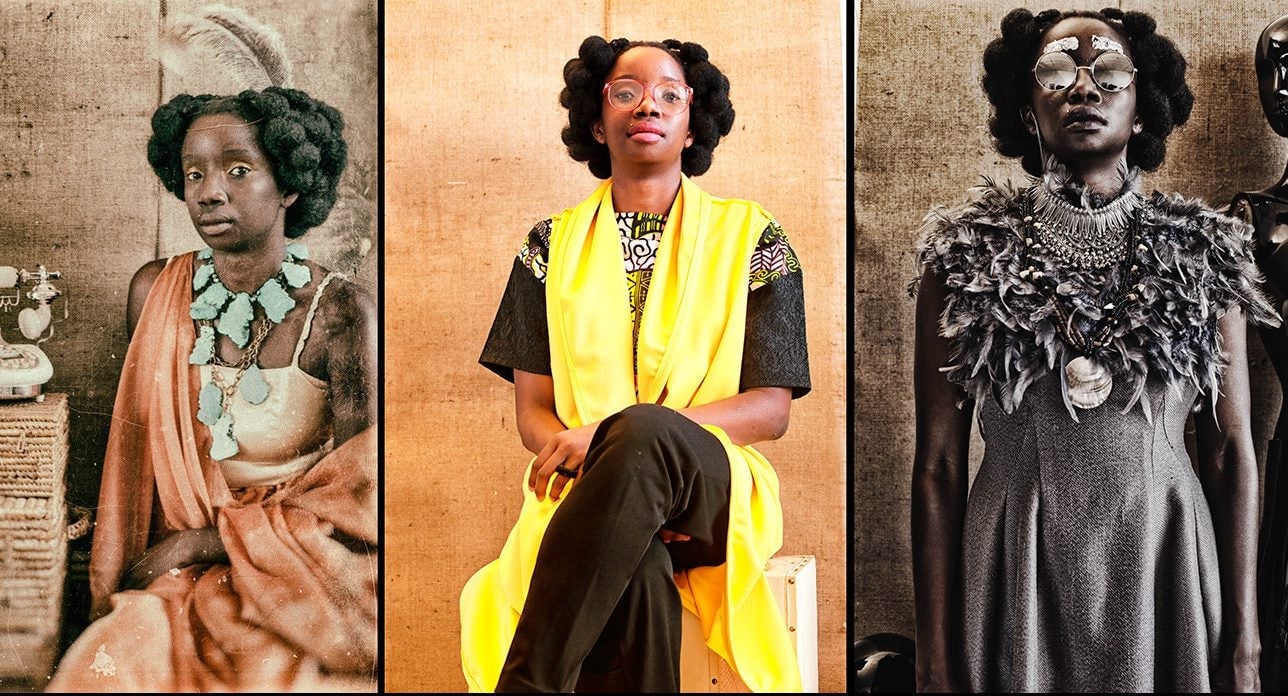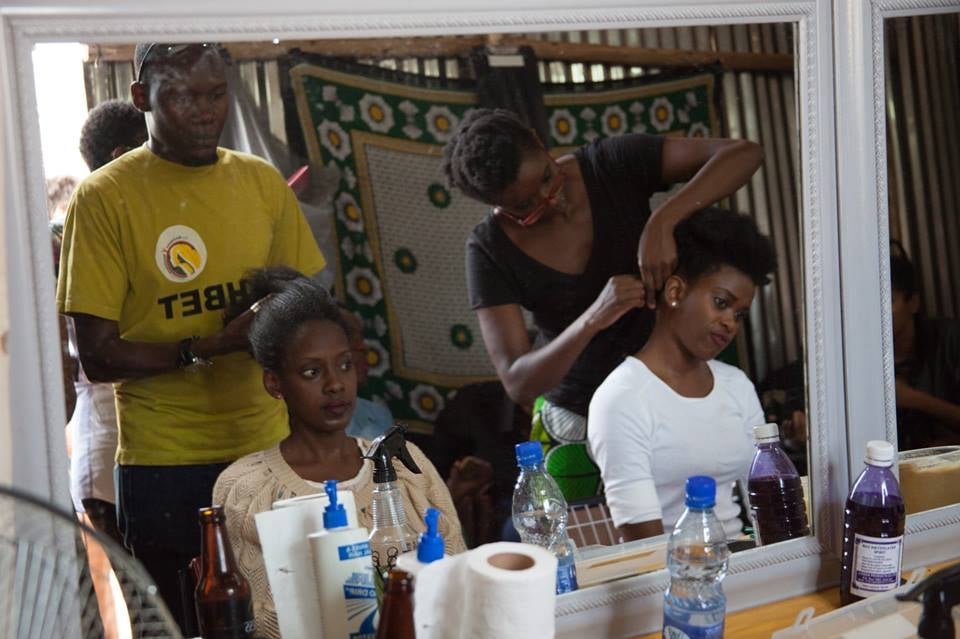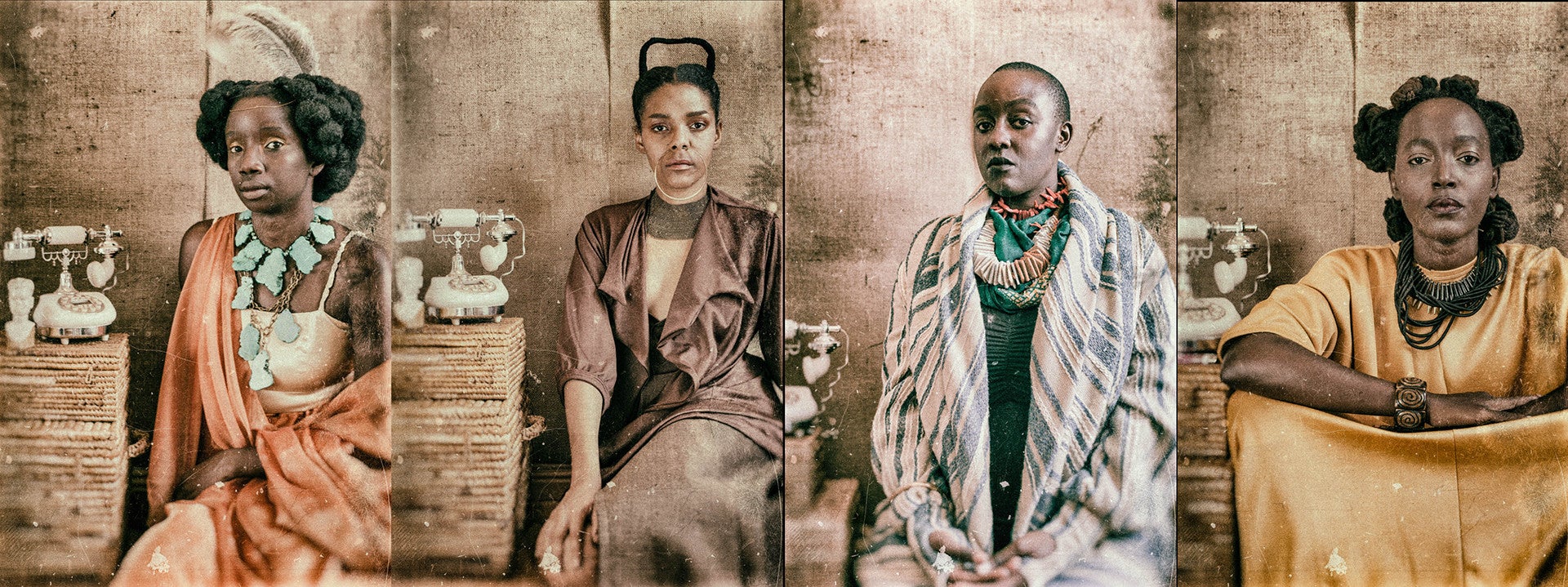A pop-up hair salon from Uganda treats black hair as a science and an art
Whenever Kampire Bahana, a Ugandan writer and DJ, walks into a salon the experience is the same. “They ask me what I’ve been doing with my hair, and no matter whether my hair is in braids or what, they tell me what I’m doing is wrong.”


Whenever Kampire Bahana, a Ugandan writer and DJ, walks into a salon the experience is the same. “They ask me what I’ve been doing with my hair, and no matter whether my hair is in braids or what, they tell me what I’m doing is wrong.”
Bahana and three of her friends are working to negate experiences like this in their pop-up salon and art installation focused on black hair, Salooni, named after what hair salons are called in Uganda. ”Most women battle with their hair because all of us live in a society that profits from our insecurities,” she says. “For black women, the extra layer is our interaction with colonialism in Africa and generally trying to achieve a standard of beauty, which is white and completely unobtainable.”
At Salooni, visitors have their hair done for free by professional stylists. They can get a massage, play with other people’s hair, or browse the photographs, video, and performances that are part of Salooni’s growing collection of research and art celebrating black hair. The stylists and visitors discuss things like braiding tips for keeping one’s hair moist.

“We’re trying to consciously create a space where we practice care for one another,” says Darlyne Komukama, a photographer and one of the project’s cofounders.
Salooni’s goal is to treat African hair as as a science, culture, and art— a “site of knowledge” to study everything from fractals, patterns that repeat at varying scales in African hairstyles, to how cornrow braiding was an act of resistance among slaves in the New World. “Definitely African hair care hasn’t ben given the credit that it deserves,” Bahana says.

Salooni, started last year at an arts festival in Uganda, will be touring in Kigali and London this year thanks to a grant from the British Council’s East Africa Arts Programme. The project comes at a time when the natural hair movement, born in the US in the early 2000s, has become even more prevalent online. These ideas have made inroads in African countries too. Bahana notes the number of new natural hair salons, products catering to natural hair, and online groups that she’s seen in the countries she’s visited. (Salooni doesn’t only celebrate natural hair, Bahana adds, stressing that anyone is welcome.)
The issue of black hair is especially fraught in parts of the continent. In South Africa, several high schools ban girls from wearing their hair naturally, a blatantly racist dress code that only drew attention once a 13 year old girl began protesting. In Uganda, many schools demand that black female students shave their hair if it can’t be kept “neat,” according to Bahana. Yet, girls of white or Asian descent can wear their hair naturally.
For the Salooni cofounders, the project is as much about the practicalities of black hair care as it is about the varying history that hair tells about the lives of African women through the ages. Billions of dollars have been pumped into the research and marketing of things like hair relaxers, which in Bahana’s opinion do more harm than good. ”We are very poorly educated about how to care for black hair,” Bahana says. “It’s only now… that we’ve started sifting through what we’ve been taught and what [practices] we want to keep and what we don’t want to keep.”